The iconic “Chucky” franchise is more than an influential horror property; it’s also important in terms of progressive LGBTQ+ representation.
Thinking of LGBTQ+ horror, Chucky (aka Child’s Play) is the first horror franchise that comes to mind.
While I haven’t written much on LGBTQ+ themes, it’s worth noting that I identify as the “B” in LGBTQ+. But I grew up during a time when that acronym didn’t exist in the public vernacular, and issues about sexuality and gender identity were only discussed in hushed tones accompanied by slurs and derisive comments.
Growing up during the 80s, if issues relating to gay, bisexual, or transgender people were discussed at all, it was usually accompanied by homophobic comments. Not only did the term LGBTQ+ not exist, but neither did inclusive terms like transgender, nonbinary, pansexual, or asexual.
I love that I can explore these issues now as they relate to my own journey. However, the absence of this growing up affected me in an adverse way.
This is why I wanted to write about the Chucky franchise.
The creator of this iconic franchise, Don Mancini, is a gay man who has made enormous strides in exploring LGBTQ+ themes in his films.
Mancini incorporates characters across the LGBTQ+ spectrum into his films and TV series.
I absolutely love the direction the Chucky franchise has taken — especially when it comes to the TV series, Chucky, which aired its first season on Syfy and USA last year and will be returning for Season 2 later this year.
The titular Chucky first entered horror history in 1988 with Child’s Play and quickly took his place among super-slashers Michael, Jason, and Freddy. However, with 1998’s Bride of Chucky, the franchise started to adopt a new attitude. Sure, it became more comedy than horror. However, this also marked another turning point in the franchise: more and more LGBTQ+ themes and representation.
Syfy quoted Chucky creator Don Mancini, saying that horror is “a genre about outsiders; the beauty of being an outsider.”
Many writers have pointed out that this makes horror the perfect genre for exploring LGBTQ+ themes.
Mancini told Looper in 2021, that, at first, his goal wasn’t to have an impact on LGBTQ+ representation in Hollywood. However, Mancini realized that he could incorporate his experiences. He said:
“The first three movies didn’t have any explicit LGBTQ+ content. Although in retrospect, I look at those movies and I do think that maybe, a little sub-textually, in that you’ve got a little boy who really wants to have this male doll as a best friend. I didn’t think about that particularly when I was writing it, but then you get older and look at it and go, ‘Oh, I wonder if there’s something going on there?'”
Bride of Chucky (1998)
It all started with a gay best friend. He didn’t even survive the movie, but it was a start.
In Bride of Chucky, we meet Tiffany Valentine (Jennifer Tilly), Chucky’s (Brad Dourif) longtime girlfriend. Tiffany manages to resurrect Chucky believing that he intended to marry her. However, when she finds out differently, she turns on him and locks him in a crib with a little bride doll to keep him company. However, Chucky kills Tiffany and transfers her spirit to the bride doll.
Chucky’s next plan is to get to Hackensack, N.J. to dig up his grave and get the Heart of Damballa — an amulet that will allow him and Tiffany to take over human hosts. The two find the perfect potential hosts in Tiffany’s neighbor Jesse (Nick Stabile) and his girlfriend Jade (Katherine Heigl).
The doomed gay character is Jade and Jesse’s best friend, David (Gordon Michael Woolvett), who’s always there to help the couple out. He even poses as Jade’s boyfriend to fool her strict police chief uncle, Warren Kincaid (John Ritter), who doesn’t approve of Jesse.
Mancini pointed out that there was a method to his madness regarding the cast.
Tilly is an LGBTQ+ icon with her role in the landmark LGBTQ+ film,1996’s Bound. He said that John Ritter has ties to the LGBTQ+ community with his role in the 80s sitcom, Three’s Company. We can’t forget, Bride includes a cameo by the late Alexis Arquette, who was a trans actress and activist.
Mancini told Looper:
“With ‘Bride of Chucky,’ the specific story that I was writing, it was about love. It was about romance, it was a parody of romantic comedies. So, in creating the characters that were going to inhabit the story, the main characters other than Chucky and Tiffany are these teenagers played by Katherine Heigl and Nick Stabile. Well, in order to make it more interesting, I thought, ‘What if their inevitable friend character — make him gay?’ It just wasn’t done at that time.”
…
Seed of Chucky (2004)
In Seed of Chucky, we meet Chucky and Tiffany’s nonbinary genderfluid child, Glenn/Glenda (Billy Boyd). Glenn/Glenda is part of a ventriloquist act with an abusive man called “Psychs” (Keith-Lee Castle). Glenn/Glenda sees the Chucky and Tiffany dolls on TV during a preview of Jennifer Tilly’s (who plays herself) new movie. They realize that Chucky and Tiffany are their parents. Glenn/Glenda manages to resurrect Chucky and Tiffany and, of course, mayhem and murder ensue.
One of the most memorable scenes from Seed of Chucky is when Chucky and Tiffany argue over whether or not their child is a boy or a girl.
Chucky wants them to be a boy, and Tiffany wants them to be a girl. They explain that sometimes they feel like a girl and sometimes they feel like a boy. They ask, “Can I be both?” This scene sums up what it’s like when society tries to put someone in a box and attach a neat, socially-approved label to them.
In a 2004 interview with New York Magazine, Mancini said that studios expected “Son of Chucky, another killer doll.”
He elaborates:
“I thought it’s much more interesting if the child is completely sweet and innocent and wants nothing to do with that activity. The bottom line is, “What if Chucky had a gay kid?” To me, that’s hilarious […] As a gay guy myself, it’s fun to get that kind of material into a mainstream movie in a subversive way. You know, I see so many gay-themed movies suffocated by their good intentions.”
Glenn/Glenda was forgotten about until they got a mention in the Chucky TV series.
Seed of Chucky is the first film in the franchise directed by Mancini. There are more LGBTQ+-related cameos and references. Filmmaker John Waters, who is also gay, has a cameo as a tabloid reporter staking out Jennifer Tilly’s house.
Waters is known for his transgressive cult films, including Pink Flamingos (1972) and Female Trouble (1974). Waters featured the late, iconic drag queen, Divine, in many of his films. Waters also wrote and directed Hairspray (1988), Cry Baby (1990), Serial Mom (1994), and Cecil B. Demented (2000).
The name Glenn/Glenda is a reference to filmmaker Ed Wood’s film Glen or Glenda (1953) about a man who is genderfluid and dresses in feminine clothing. The film is reportedly biographical. According to those who knew Wood, he was genderfluid and dressed in feminine clothing. Wood also had a particular fondness for angora like his film’s titular character.
Curse of Chucky (2013)
Curse of Chucky (2013) marks another shift to a completely different storytelling style. The comedy is gone for the most part, and so is the camp, as Mancini presents more of a gothic-style murder mystery in this film.
Nica Pierce (Fiona Dourif) is a paraplegic woman whose family is being stalked and killed one by one. After the death of Nica’s mother, Sara (Chantal Quesnel), Nica’s family comes to stay. That includes her sister, Barb (Danielle Bisutti), and her husband, Ian (Brennan Elliott), their young daughter Alice (Summer H. Howell), and their nanny Jill (Maitland McConnell) — as well as a priest, Father Frank (A. Martinez).
The LGBTQ+ theme is a subplot in Curse of Chucky.
Nica’s sister, Barb is having an affair with her nanny, Jill. However, both get killed off, and Nica and Alice are the only survivors. Chucky was looking for revenge against the Pierce family and does get the ultimate revenge in the end. Nica is tried and convicted for the murders and sent to a mental institution.
Cult of Chucky (2017)
We find Nica (Fiona Dourif) from Curse of Chucky now in a mental institution at the mercy of Dr. Foley (Michael Therriault), an unscrupulous psychiatrist who takes advantage of Nica and sexually abuses her. Of course, Chucky finds his way in, and the usual blood-soaked chaos ensues. Chucky finds a way to split his spirit apart into a group of host bodies (other Good Guy dolls) forming a cult.
After his usual murder spree, Charles Lee Ray finally gets his wish — in a gender-bending plot twist. He finally possessed a human host, Nica. Chucky-possessed Nica leaves with Tiffany at the end.
I thought this was an epic twist and absolutely loved this ending to the movie. Tiffany definitely gives off major bi-vibes saying that Chucky’s switch to a human female body could be interesting.
(Later, Fiona Dourif would deliver a brilliant performance in the Chucky TV series, stepping into her father’s shoes in the role of Charles Lee Ray.)
Back in 2017, Tilly told Pride Source that Mancini took inspiration from Bound for the final scene where Tiffany and Nica drive off.
Tilly told Pride Source:
“I think Fiona Dourif is a brilliant actress… and she’s really hot! (Laughs) But the funny thing is, when (Fiona) came out of that building, and she was possessed by Chucky, she looked like her dad (Brad Dourif, who has voiced Chucky since the original “Child’s Play” in 1988) and she looked like Chucky the way she was walking and moving and everything. And it was even hotter than the feminine Fiona Dourif! Fiona Dourif as a man trapped in a woman’s body – got a little bit of transgender, gender-fluid energy going on there.”
Chucky (2021-)
Jake Wheeler (Zackary Arthur) is a gay 14-year-old boy who collects dolls and makes art from their parts. He is bullied at school and abused at home by his homophobic father, Luke (Devon Sawa). Jake buys Chucky at a yard sale in his hometown of Hackensack, N.J.
Jake discovers who Chucky is and, in an odd way, Chucky fills a void in Jake’s life. He’s really the only person who accepts Jake for who he is.
“You know, I had a queer kid,” Chucky tells Jake. Chucky adds that his child is gender fluid and Jake asks if he’s OK with it. Chucky replies, “I’m not a monster, Jake.”
As Chucky slashes his way through Hackensack, the series also explores Jake’s anger at his classmates and his feelings of alienation. However, Jake finds a friend and, eventually, a love interest, in a classmate, Devon Evans (Björgvin Arnarson) who also happens to have a true-crime podcast.
Mancini told Out:
“I know as a 14-year-old when I went to see movies like THE OMEN or CARRIE or THE FURY…CHRISTINE is another one…where a bullied kid gets supernatural revenge, you know, none of those movies has a single gay character in them. So I think it’s good to give kids, who are horror fans, someone to identify with.”
It’s not only kids. It’s also for adults who grew up in a society that made it difficult to near impossible to find yourself unless you were straight and cis-gender.
In addition to Jake, there’s also the very bi/lesbian energy to the continuing Nica/Chucky and Tiffany relationship. Tiffany displays her bisexual nature in both flashbacks and in her having a very physical relationship with Chucky inside of Nica’s body.
In a flashback, Tiffany (played by Blaise Crocker in the flashbacks) willingly goes to a hotel room with Chucky and his girlfriend at the time. Tiffany engages in passionate love-play with her as Chucky watches. However, Tiffany also very willingly helps Chucky kill her.
…
From Bride of Chucky’s doomed gay friend to Chucky’s gay protagonist, Jake Wheeler, there’s a progression as far as Mancini’s LGBTQ+ themes and representation.
He started slowly working LGBTQ+ themes and characters into his Chuckyverse.
Mancini has broken new ground over the course of the Chucky franchise with a series of firsts in the horror genre, including Chucky and Tiffany’s transgender child, Glenn/Glenda in Seed of Chucky, and gay teen protagonist Jay Wheeler in the TV series Chucky.
Mancini has given horror a much-needed twist and hopefully, he continues to do so.


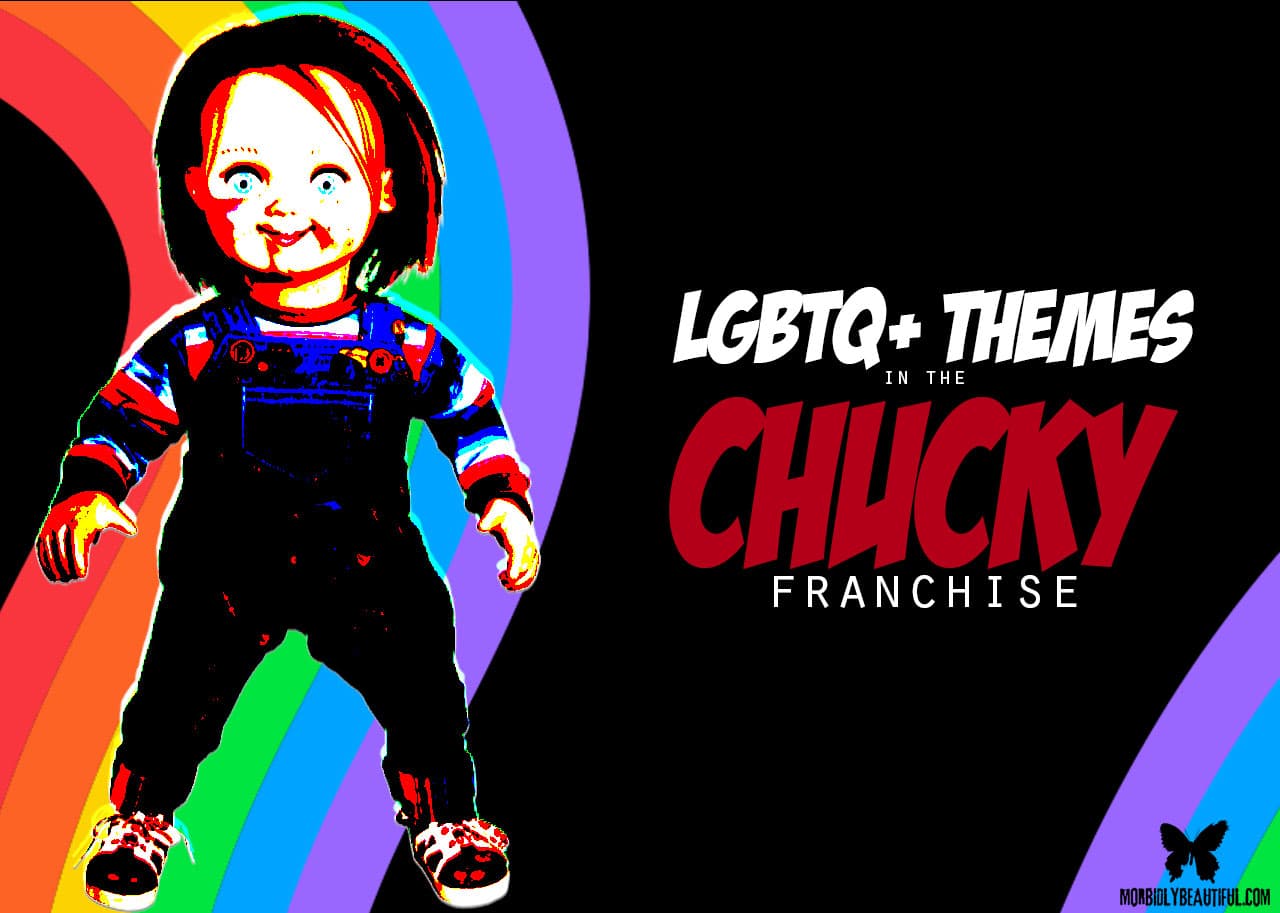
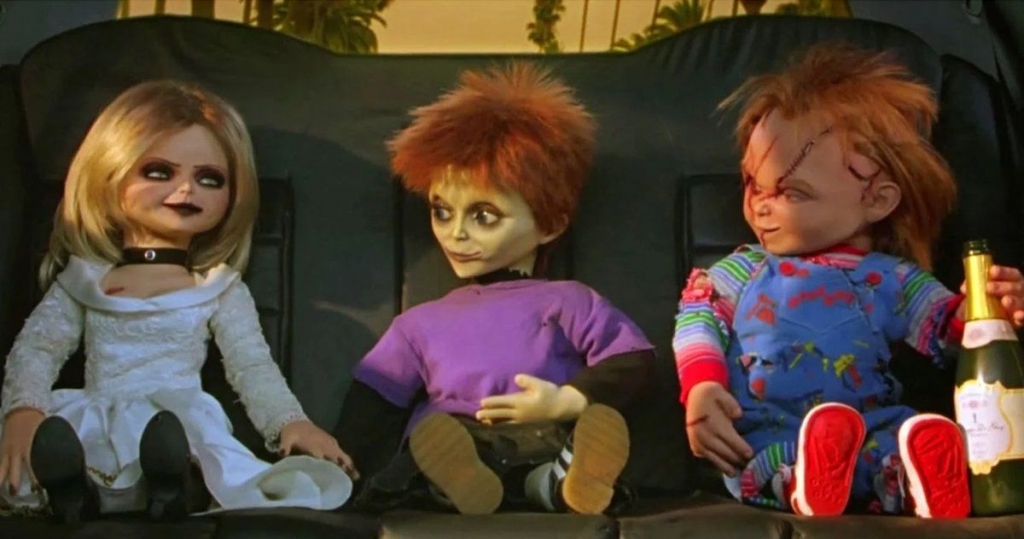

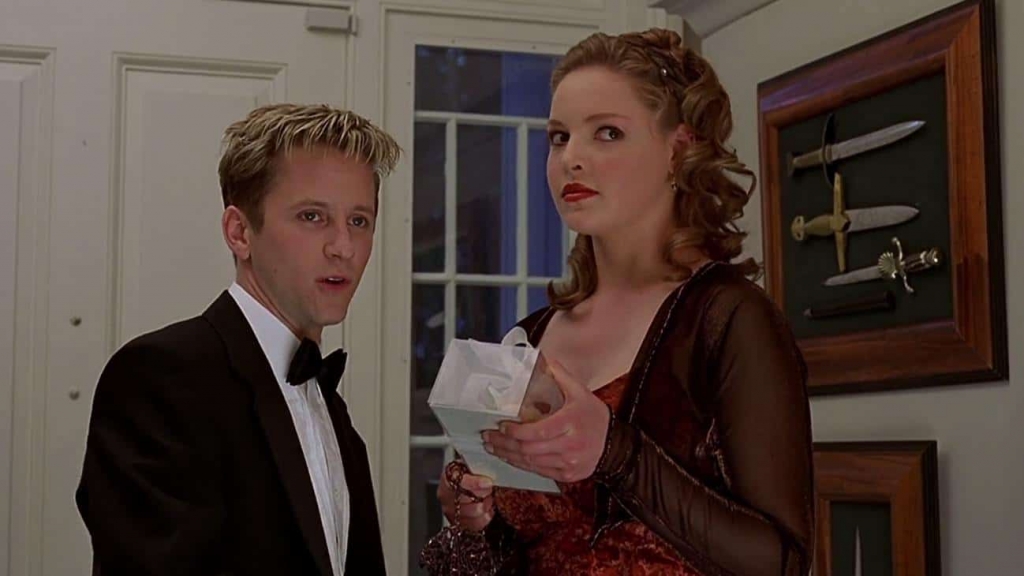
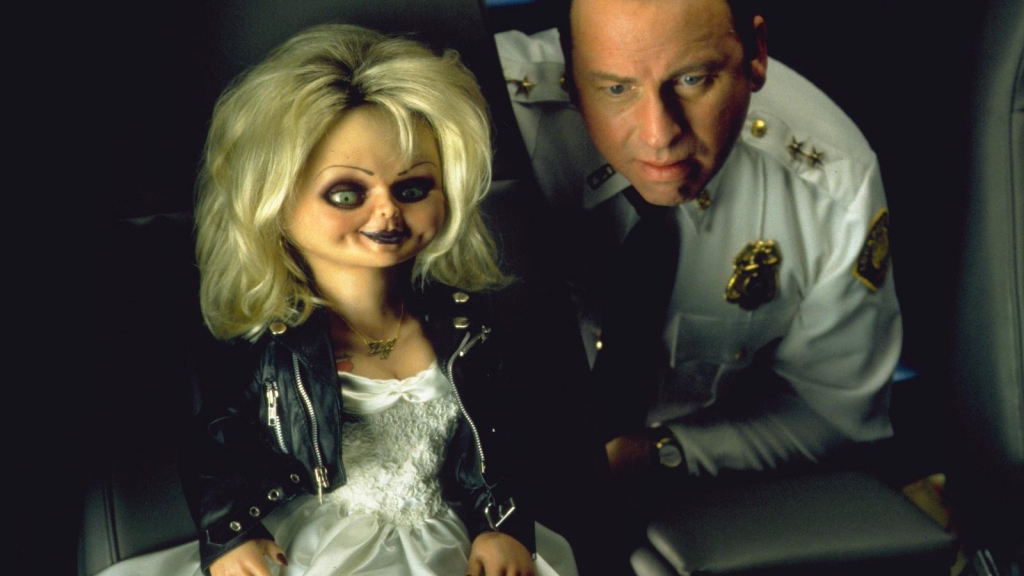
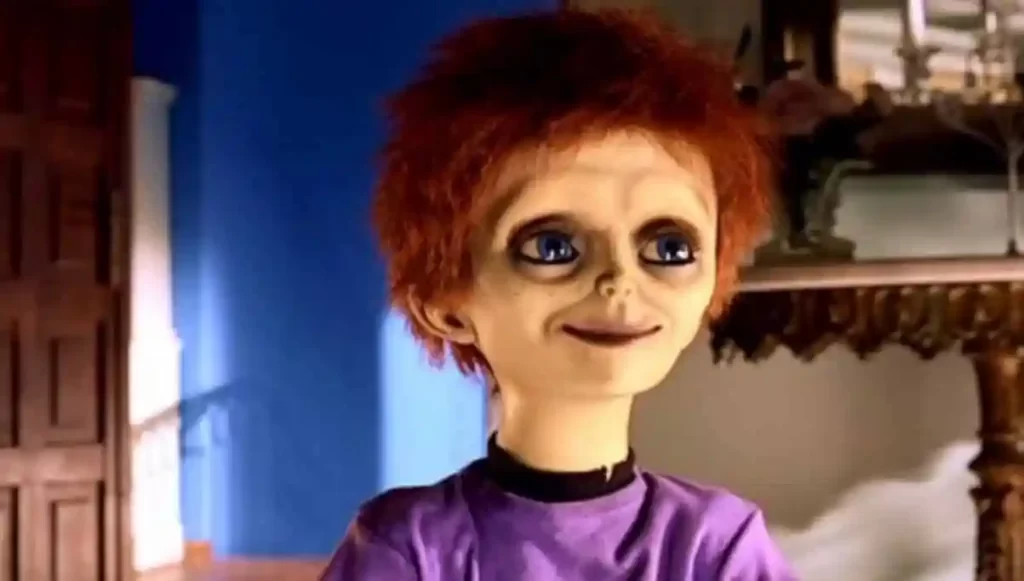
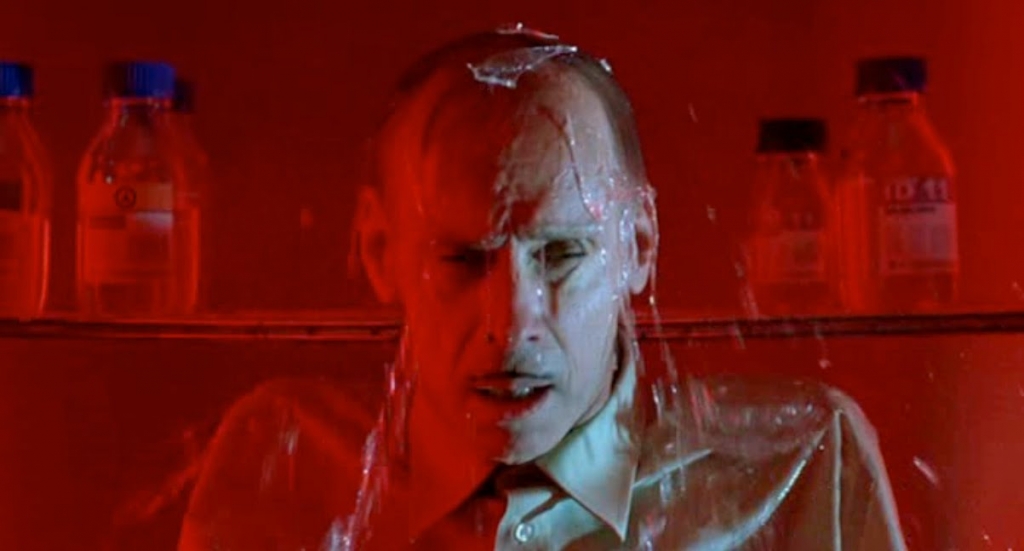
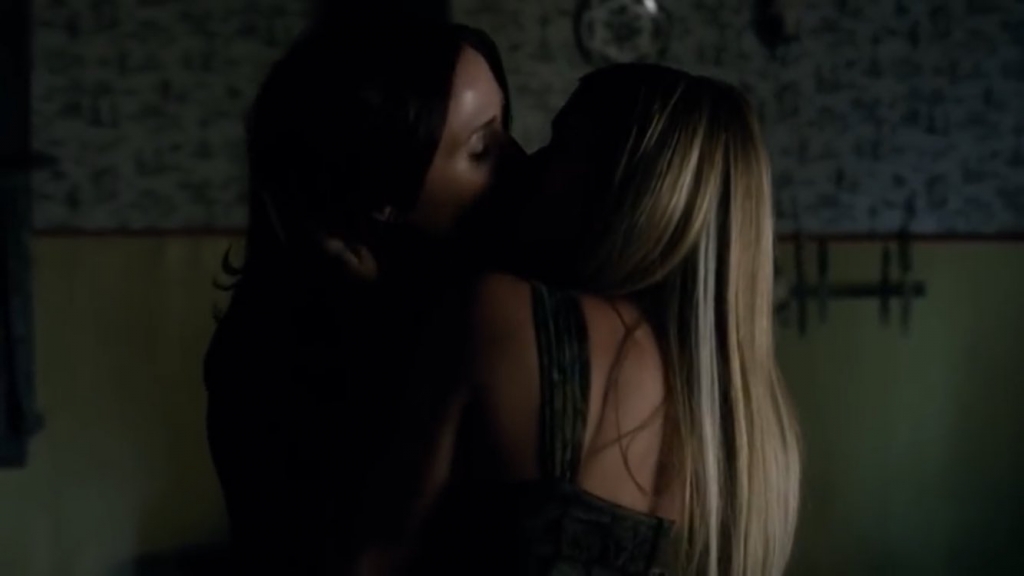
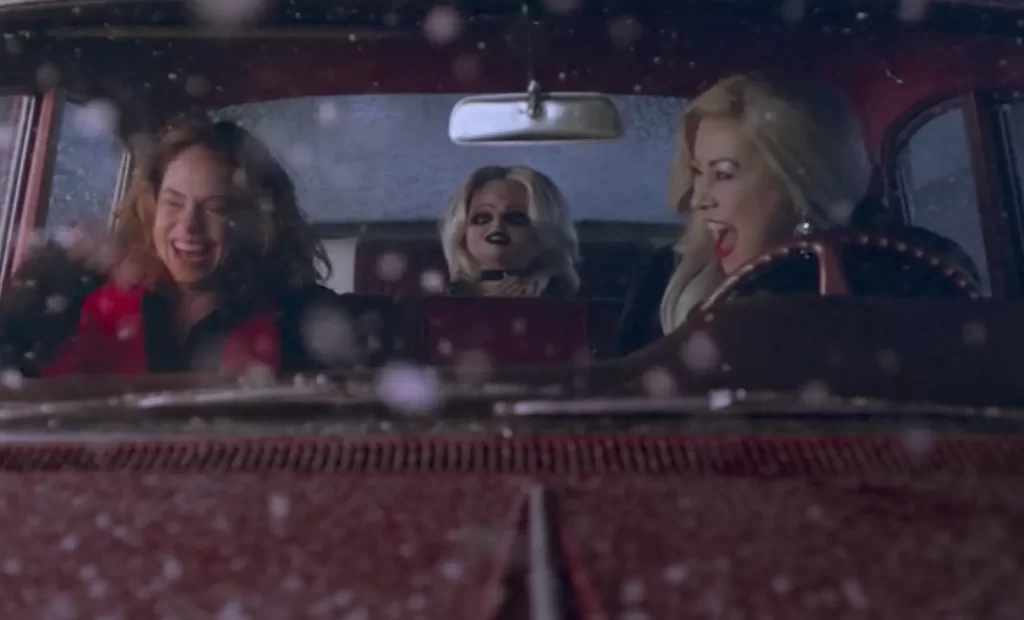
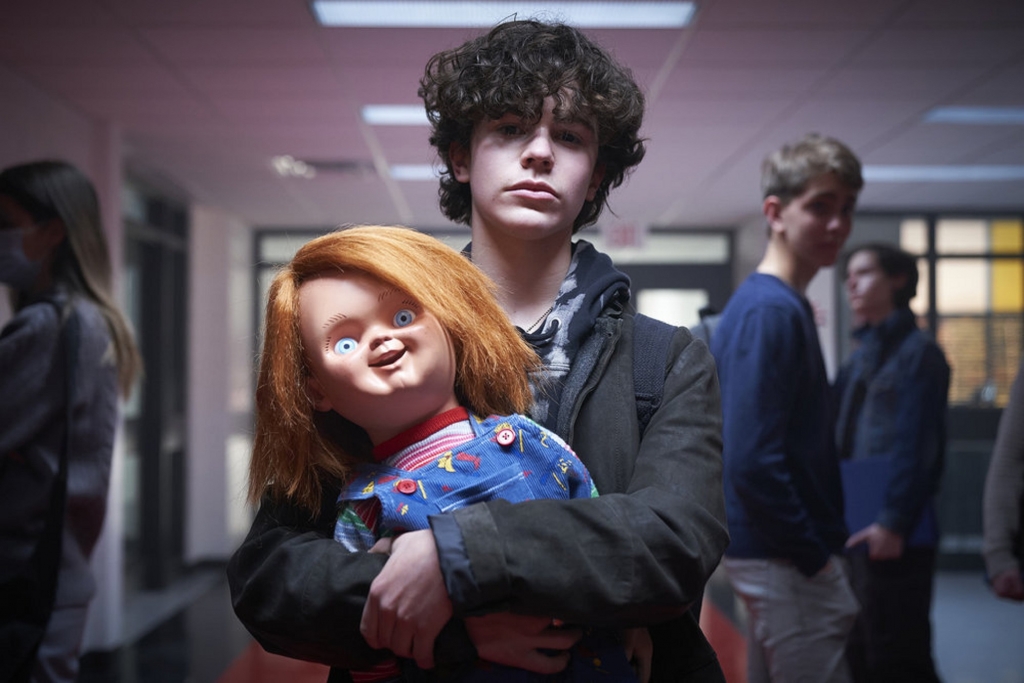
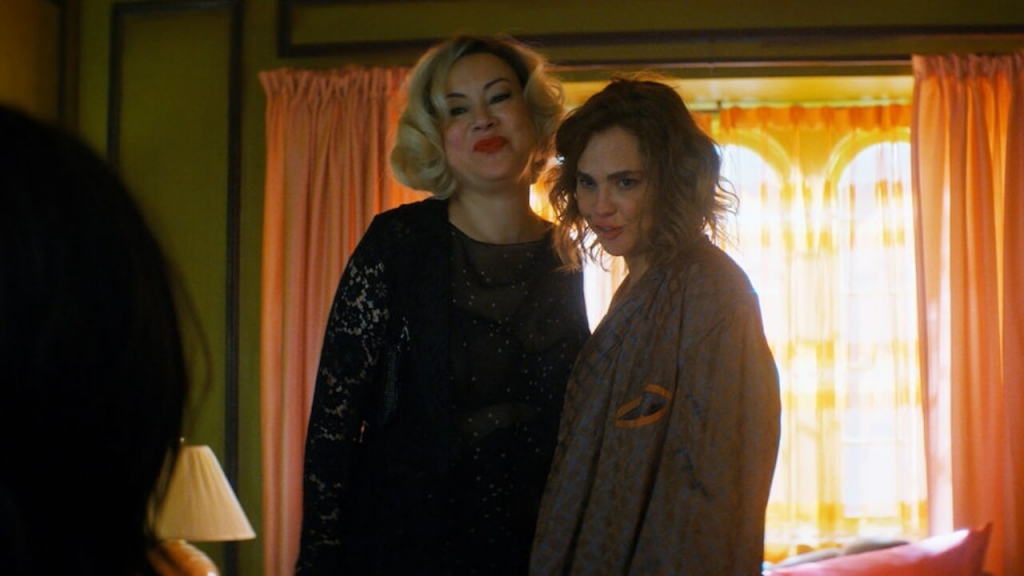

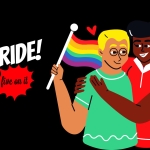






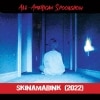



Follow Us!